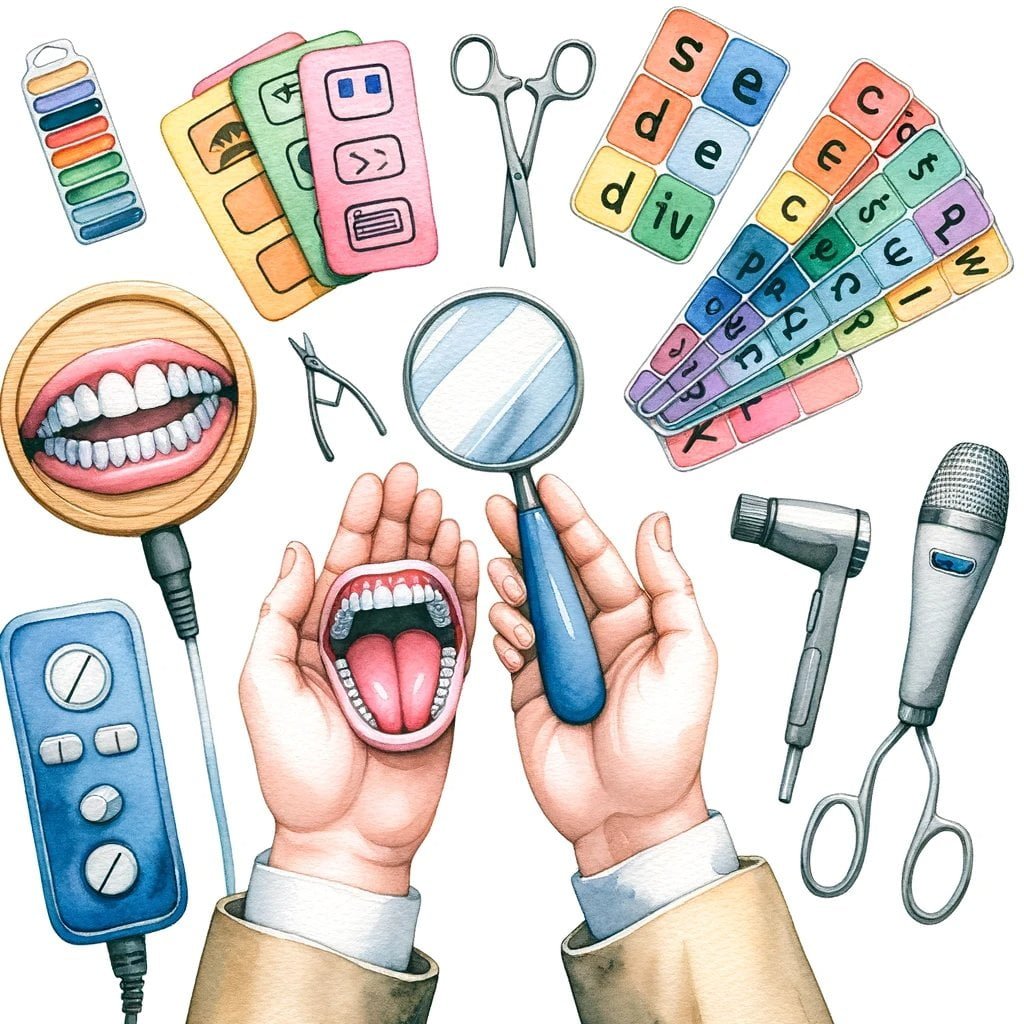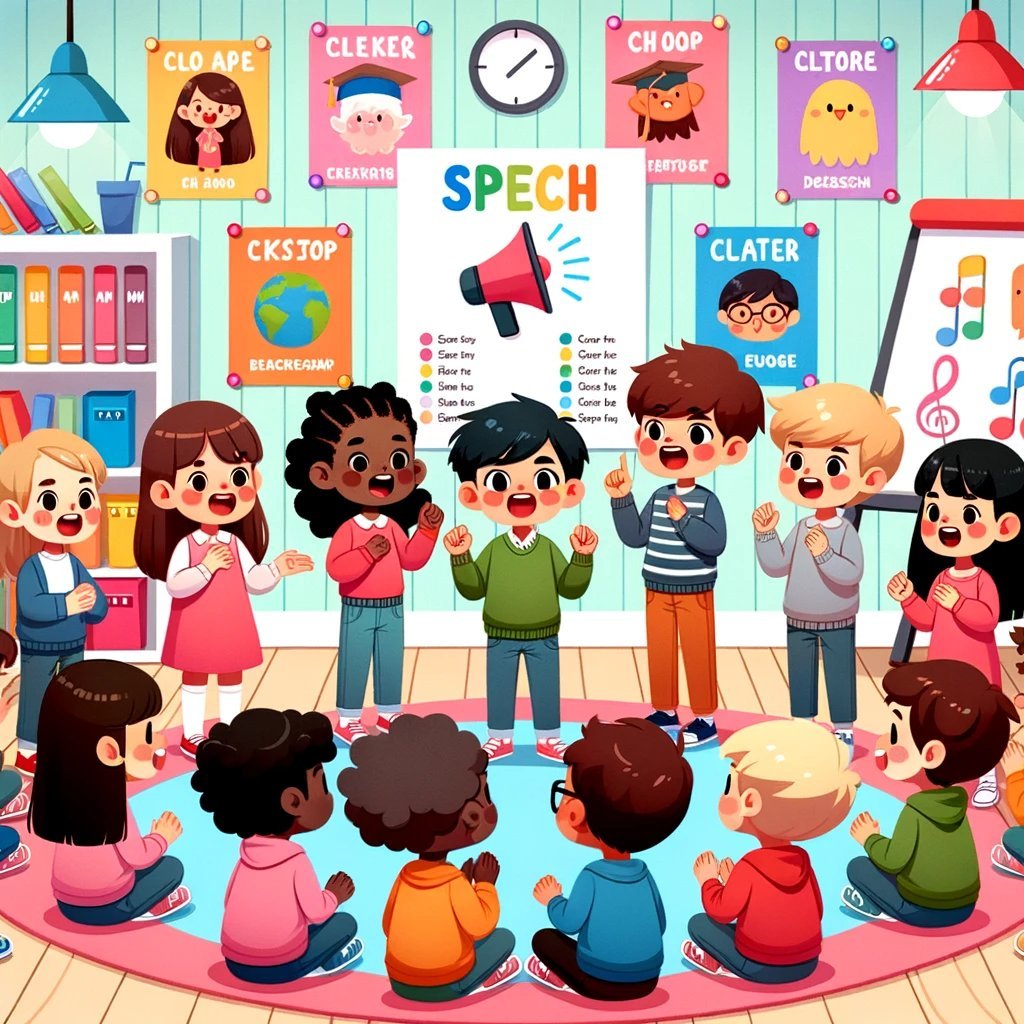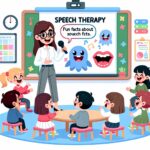Communication issue patients have traditionally benefited from speech therapy. Speech treatment, like any therapy, has limitations. My experience as a speech-language pathologist has shown me the risks of this technique. This article will discuss speech therapy’s drawbacks and how it may not suit the different needs of people with communication difficulties. We can better understand how speech therapy can be enhanced to benefit individuals in need by investigating these limits.
What are the Disadvantages of Speech Therapy?
Speech therapy helps communication disorder patients improve their speech and language skills. However, this therapy approach’s limitations must be considered. This article discusses speech therapy’s limitations and crucial considerations.
Time-Consuming for Parents and Children
Speech therapy takes time for parents and children. Several weekly therapy appointments are needed to maintain regular attendance. This can be difficult for busy families with demanding schedules. It may entail changing job, school, and other schedules. Speech treatment requires time, so consider this while choosing it.
Academic and Social Consequences for Children
The scholastic and social effects of speech therapy on youngsters are another drawback. Therapy often takes kids out of class, disrupting their learning and peer connections. Missing school activities and social events can cause isolation and academic failure. Parents and educators must balance speech and language needs with a child’s development and classroom involvement.
Challenges in Focused Individualized Therapy
School-based SLPs generally have enormous caseloads, making focused personalized therapy challenging. SLPs may struggle to address each student’s needs due to time and resource constraints. This may reduce personalised and focused interventions. Parents, educators, and SLPs must work together to achieve therapy goals.
Interruptions in Therapy due to School Schedule
School scheduling interruptions might also hinder speech therapy in schools. Long absences like summer vacation or holidays can impair therapy. Interruptions slow growth and demand more time to learn earlier abilities. Parent and instructor consideration of how these gaps may affect speech therapy efficacy is crucial.
Lack of Expertise for Specific Disorders
School-based SLPs are skilled, but they may not have the knowledge or skills to treat specific speech or language issues. Specialized training is needed to treat some speech and language difficulties. Such instances may require additional resources or referrals to specialized clinics or experts. Collaborating with disorder-specific specialists can improve speech therapy outcomes.
Extensive Education and Training Required
Speech therapists need substantial training. Master’s degrees, clinical practicum hours, and national exams are usual for speech-language pathology programs. Becoming a speech-language pathologist takes time and money. However, this intensive training equips speech therapists to diagnose and treat communication difficulties.
Distractions and Maintaining Focus in Home-Based Therapy
Distractions and focus issues can hinder home-based speech therapy. Home distractions might impede therapeutic sessions, unlike structured therapy environments. Sibling or family noise, conflicting activities, or a lack of therapeutic space are examples. Home-based speech treatment may demand extra work to focus and provide a good learning environment.
In conclusion, speech therapy improves communication and treats speech and language impairments, but its limits must be considered. Time constraints, academic and social consequences for children, challenges in providing focused therapy, school schedule interruptions, limited expertise for specific disorders, extensive education and training requirements, and potential distractions in home-based therapy should be considered. We can improve speech treatment outcomes by knowing and resolving these disadvantages.
Speech pathology is a fascinating field that studies and treats communication difficulties. Speech pathologists are heroes for assisting people with speech problems and swallowing issues. If you’re curious about speech pathology facts, click here to uncover some incredible insights. Prepare to be amazed by the extensive knowledge and expertise that speech pathologists possess as they work tirelessly to enhance the quality of life for their patients.
Time Commitment and Frequency of Sessions
Speech therapy session duration and frequency are significant. How often should therapy occur? How much time should each session take? These are key questions that can affect therapy efficacy and patient outcomes.
The Impact of Session Frequency on Recovery Speed and Outcome
Research shows that the frequency of early therapy sessions can affect recovery speed and outcome. A study in a big Dutch mental health facility found that low initial treatment frequency may lead to a worse outcome and a more persistent mental condition. However, another study revealed that more sessions accelerated recovery.
Considerations for Session Frequency
Several things must be considered when choosing therapy session frequency. The degree of the communication issue, age, and functional impairment are considerations.
Prioritizing weekly therapy may improve results. It is also unclear how decreasing session frequency affects speech treatment efficacy. More study is needed to determine how session frequency affects therapeutic outcomes.
Balancing Time Commitment and Quality of Therapy
The therapist and patient must dedicate a lot of time to speech therapy. Therapists must balance quantity and quality of therapy sessions.
Increasing session frequency may speed improvement, but each session must be tailored to the individual. Prioritize quality over quantity to achieve therapy goals.
The Role of Acceptance and Commitment Therapy (ACT)
Acceptance and Commitment Therapy (ACT) reduces pain and improves well-being via core change. It is not specific to speech therapy, but the empirical status of ACT is of importance in mental health treatment.
For urgent and difficult requirements, intensive therapy (3 or more sessions per week) may be indicated. However, group therapy session frequency does not appear to harm therapeutic processes.
Conclusion
Time commitment and session frequency are major speech therapy limitations. Therapists must balance session frequency and time commitment to maximize success. To achieve treatment goals, therapists must consider individual circumstances and value quality over quantity. More research is needed to determine how session frequency affects therapeutic outcomes.
Difficulty in addressing complex or unique speech and language disorders
Speech therapy is an excellent way for people with speech and language impairments to enhance their communication skills. Complex or distinctive speech and language impairments might be difficult to treat. These cases demand greater insight, skill, and individualized therapy.
Understanding the Complexity
Each case of speech and language problem is distinct. Some people have trouble pronouncing sounds or words. Language impairments can make speaking and understanding difficult. Speech and language difficulties also include swallowing disorders.
The Role of Speech-Language Pathologists
SLPs are essential in diagnosing, assessing, and treating speech and language impairments. They can work with preschoolers to adults and have the skills to do so. Complex speech and language impairments can be difficult to treat, even with their expertise.
Tailored Treatment Approaches
When faced with complex or unique speech and language disorders, SLPs need to adapt their treatment approaches to meet the individual’s specific needs. This requires a deep understanding of the underlying causes and mechanisms of the disorder. It may involve utilizing specialized assessment tools, collaborating with other professionals, and staying updated on the latest research and advancements in the field.
Limited Evidence and Research
Lack of data and research can hinder treating complex speech and language issues. Each person’s illness is distinct, making it hard to generalize treatment or build a methodology. Speech therapy is evidence-based, however complex or unusual circumstances may lack research.
Multidisciplinary Collaboration
To tackle the challenges associated with complex or unique speech and language disorders, multidisciplinary collaboration becomes essential. SLPs may need to work alongside other healthcare professionals, such as neurologists, psychologists, or occupational therapists, to develop a holistic treatment plan. This collaborative effort ensures a comprehensive approach that addresses the complexity of the individual’s condition.
The Importance of Patience and Persistence
It is important to note that addressing complex or unique speech and language disorders may require more time, patience, and persistence than addressing more straightforward cases. Progress may be gradual, and setbacks along the way are not uncommon. SLPs, individuals, and their families must maintain a positive mindset and be prepared for extended treatment periods.
In Summary
People with speech and language difficulties benefit from speech therapy. However, complex instances can make therapy difficult. Speech-language pathologists and other professionals design treatments to these issues. Complex and unique illnesses may have limited research and evidence, but a multidisciplinary approach, patience, and effort can enhance communication abilities.
FAQ
Question 1: What are some potential drawbacks of speech therapy?
Answer 1: Some potential drawbacks of speech therapy include the possibility of a less favorable outcome and a more chronic course of the mental disorder if the frequency of initial treatment sessions is low. It is important to consider session frequency when determining the dose of therapy, as prioritizing weekly therapy sessions may increase therapy effectiveness.
Question 2: Are there any known adverse effects of speech therapy interventions?
Answer 2: There are no known adverse effects of speech therapy interventions. Speech-language pathologists specialize in diagnosing, assessing, and treating speech and language disorders, and their interventions are aimed at addressing deficits in language form and other impairments in speech and language.
Question 3: How do speech and language disorders differ?
Answer 3: Speech disorders interrupt the flow of speech and can manifest as stuttering, repetitions, and blocks. On the other hand, language disorders make it difficult to use and understand spoken language. While speech disorders are related to the production of speech sounds, language disorders encompass difficulties in language comprehension and expression.
Question 4: Can speech therapy benefit preschool-age children with speech and language disorders?
Answer 4: Yes, speech therapy can be beneficial for preschool-age children with speech and language disorders. These disorders are common in this age group, and speech-language pathologists can provide interventions to help improve their communication skills and overall development.
Question 5: What types of language disorders exist?
Answer 5: There are three different types of language disorders. Expressive language disorder involves difficulties in expressing thoughts and ideas, receptive language disorder affects language comprehension, and mixed receptive-expressive language disorder encompasses both expressive and receptive language difficulties. Speech-language pathologists can assess and treat these different types of language disorders based on individual needs.
- Unlock 6000+ words beginning with he: A comprehensive analysis - April 20, 2025
- Mastering -al Words: A Complete Guide - April 20, 2025
- Master Scrabble: High-Scoring BAR Words Now - April 20, 2025



















